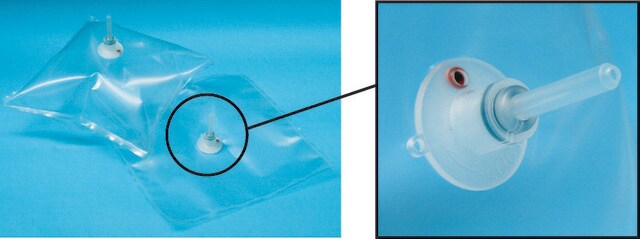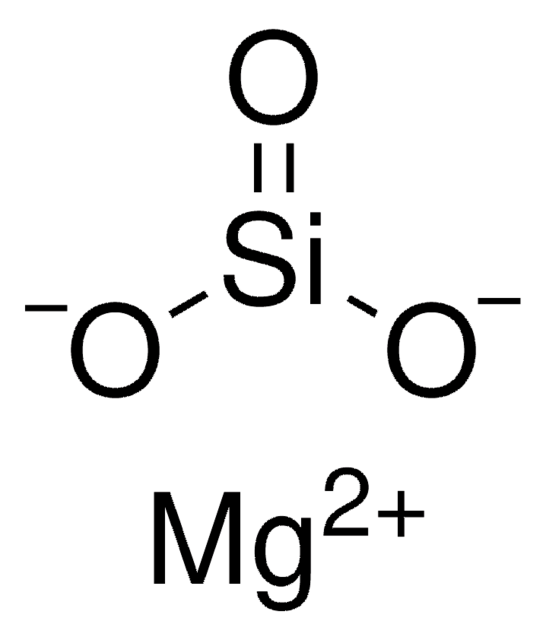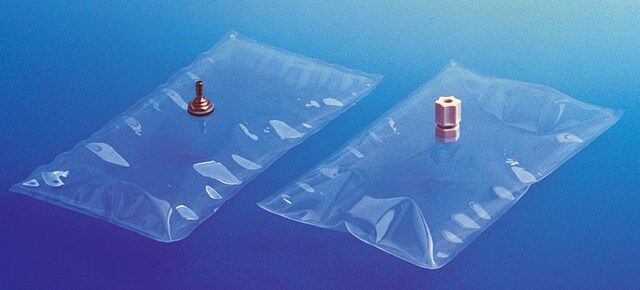48924-U
Voraktiviertes Florisil®
ampulized, for use with Dioxin Sample Preparation Kit, 60-100 mesh particle size, pk of 10
Synonym(e):
activated Florisil/magnesium silicate
Anmeldenzur Ansicht organisationsspezifischer und vertraglich vereinbarter Preise
Alle Fotos(1)
About This Item
Empfohlene Produkte
Agentur
suitable for EPA 1613
Qualitätsniveau
Verpackung
pk of 10
Methode(n)
solid phase extraction (SPE): suitable
Partikelgröße
60-100 mesh
Anwendung(en)
food and beverages
Kompatibilität
for use with Dioxin Sample Preparation Kit
Allgemeine Beschreibung
Pre-activated ampulized Florisil is intended for use with the Supelco Dioxin Prep System to affect the class separation of polychlorinated biphenyls (PCBs) from polychlorinated dibenzo-p-dioxins and dibenzo-furans (PCDD/Fs).
Hinweis zur Analyse
How to Use the Pre-activated Florisil®:
- Insert glass wool plug into the tapered end of a graduated serological pipette
- Snap the ampul and empty contents completely into the serological pipette
- Top the Florisil® with approximately 1 mL of sodium sulfate and a glass wool plug
- Carefully dispose of the empty glass ampul
- Condition the bed to remove pockets of air and to wet the surface ofthe material using appropriate solvent or solvent combination
- Follow the remaining steps in EPA method 1613b.
Rechtliche Hinweise
Florisil is a registered trademark of U.S. Silica Company
Lagerklassenschlüssel
13 - Non Combustible Solids
WGK
nwg
Flammpunkt (°C)
Not applicable
Hier finden Sie alle aktuellen Versionen:
Analysenzertifikate (COA)
Lot/Batch Number
Leider sind derzeit keine COAs für dieses Produkt online verfügbar.
Wenn Sie Hilfe benötigen, wenden Sie sich bitte an Kundensupport
Besitzen Sie dieses Produkt bereits?
In der Dokumentenbibliothek finden Sie die Dokumentation zu den Produkten, die Sie kürzlich erworben haben.
Unser Team von Wissenschaftlern verfügt über Erfahrung in allen Forschungsbereichen einschließlich Life Science, Materialwissenschaften, chemischer Synthese, Chromatographie, Analytik und vielen mehr..
Setzen Sie sich mit dem technischen Dienst in Verbindung.




